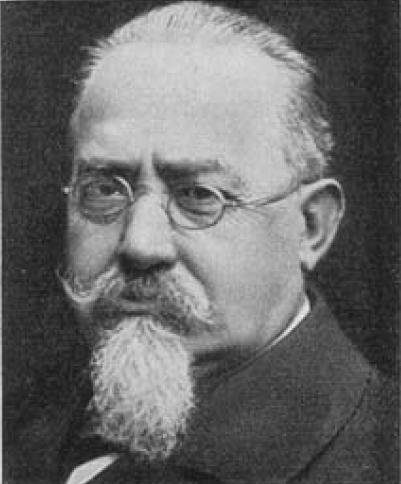November 6: Cesare Lombroso
Cesare Lombroso (1835)
It was also on this date, November 6, 1835, that Italian-Jewish anthropologist and criminologist Cesare Lombroso was born Ezechia Marco Lombroso in Verona, Italy. He studied at Padua, Vienna and Paris, knew Chinese, Chaldaic, and Hebrew before he was twenty, and was appointed in 1862 professor of psychiatry at Pavia. By age 40, Lombroso was the most famous criminologist in Europe, which coincided with the publication of his L'Uomo Delinquente (Criminal Man) in 1875, a work widely translated and greatly influential.
Although Lombroso's science of criminology was largely based on the thoroughly discredited pseudoscience of phrenology — the study of the shape and size of the head as a supposed indicator of character and criminality — he transformed criminology from a legalistic art to a true science. Throughout his career, Lombroso was an outspoken Atheist and materialist, and became an honorary associate of the British Rationalist Press Association.
Toward his death, Lombroso was duped into the popular passion for Spiritualism, a fraud later exposed and rarely remembered. In her biography of her father, his daughter Gina Lombroso-Ferrero says he was physically frail and susceptible to adverse influences in the three years before his death.*
Lombroso died in Turin, Italy on 19 October 1909. It was Cesare Lombroso at the height of his powers who said: "If ever there was an individual in the world opposed to spiritism by virtue of scientific education, and I may say, by instinct, I was that person. I had made it the indefatigable pursuit of a lifetime to defend the thesis that every force is a property of matter and the soul an emanation of the brain."**
* Gina Lombroso-Ferrero (1872-1944), Cesare Lombroso: Storia della Vita e delle Opere, Narrata dalla Figlia (Cesare Lombroso: Story of His Life and Works, recounted by his Daughter). Turin: Fratelli Bocca; 1915. ** Cesare Lombroso, After Death, What?. London: T.F. Unwin, 1909.
Originally published November 2003.


